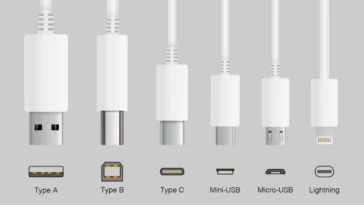In today’s digital age, we’re constantly creating and accumulating data, from precious family photos and videos to critical work documents and creative projects. The question isn’t if you need to store this data, but how. The two most popular and effective solutions are external hard drives and cloud storage, each offering distinct advantages. Understanding their differences is key to making an informed decision that suits your lifestyle or business.
External Hard Drives: Tangible, Fast, and Controlled
An external hard drive is a physical device that connects directly to your computer or other devices, typically via a USB cable. It’s like an extension of your computer’s internal storage, offering a convenient way to expand capacity and keep backups.
Pros of External Hard Drives:
- Speed: Especially with Solid State Drives (SSDs), external drives offer very fast data transfer speeds, making them ideal for large files like video editing projects or gaming libraries.
- No Internet Required: Once you have the drive, you can access your data anytime, anywhere, without needing an internet connection. This is invaluable in areas with unreliable internet or for keeping sensitive data offline.
- One-Time Cost: You pay for the drive upfront, and that’s generally it. There are no recurring subscription fees, making them a cost-effective solution for long-term, large-volume storage.
- Complete Control & Privacy: Your data remains entirely in your physical possession. You have full control over who accesses it, offering peace of mind for highly sensitive information.
- Portability (for smaller drives): Many external drives are compact and lightweight, making them easy to carry and transfer data between different computers.
Cons of External Hard Drives:
- Physical Vulnerability: External drives are susceptible to physical damage from drops, spills, fire, or theft. If the drive fails, your data could be lost unless you have another backup.
- Limited Accessibility: You need the physical drive with you and a compatible port to access your data. Sharing files with others can be less convenient than cloud storage.
- Scalability Limitations: Once you fill a drive, you need to buy another one. This can become cumbersome if your storage needs grow rapidly.
- Manual Backups: While some drives come with backup software, you typically need to remember to plug in the drive and initiate backups regularly.
Cloud Storage: Accessible, Scalable, and Convenient
Cloud storage involves storing your data on remote servers maintained by a third-party provider (e.g., Google Drive, Dropbox, Microsoft OneDrive, iCloud). You access your files via the internet, often through a web browser or dedicated app.
Pros of Cloud Storage:
- Universal Accessibility: Access your files from any internet-connected device, anywhere in the world. This is perfect for remote work, travel, and seamless collaboration.
- Automatic Backups & Syncing: Many cloud services offer automatic syncing and backup features, ensuring your files are always up-to-date across all your devices without manual effort.
- Scalability: You can easily increase or decrease your storage space as needed by upgrading or downgrading your subscription plan, without needing to buy new hardware.
- Disaster Recovery: Your data is protected from local disasters like fire, flood, or theft, as it’s stored off-site in secure data centers with redundant backups.
- Easy Sharing & Collaboration: Sharing files and folders with others is simple and secure, making cloud storage ideal for teamwork and joint projects.
Cons of Cloud Storage:
- Internet Dependency: You generally need an active internet connection to access, upload, or download your files.
- Recurring Costs: Most cloud storage services operate on a subscription model, meaning ongoing monthly or annual fees, which can add up over time for large storage needs.
- Security Concerns: While providers invest heavily in security, you are entrusting your data to a third party. It’s crucial to choose reputable providers and use strong passwords and two-factor authentication.
- Initial Upload Time: Uploading a large amount of data to the cloud for the first time can be time-consuming, depending on your internet speed.
Which Option is Right for You?
The best solution often depends on your specific needs:
- For maximum speed and offline access, especially for large media files or regular full system backups: An external hard drive (or multiple drives) is an excellent choice.
- For ultimate accessibility, automatic syncing across devices, and easy sharing/collaboration: Cloud storage is a clear winner.
- For critical data that absolutely cannot be lost: The recommended approach is a hybrid strategy – use both! Store your most vital files on an external hard drive and back them up to a cloud service. This “3-2-1 backup strategy” (3 copies of data, on 2 different media, with 1 copy off-site) offers the highest level of data security.
At Electronics Place, we offer a wide selection of reliable external hard drives, including portable and desktop models, as well as advice on integrated solutions for robust data protection. Whether you prioritize speed, accessibility, or security, we have the storage solutions to keep your digital life safe and accessible.





 No products in the cart.
No products in the cart.